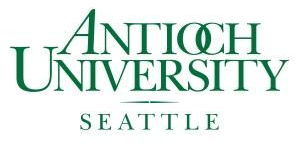
Accreditation

The Heritage Institute has been inspiring teachers and their students by offering quality professional development courses, workshops and field studies since 1976. We are an approved provider of Washington State Clock Hours and Oregon PDUs and are located on the OSPI website under Educating for Humanity Institute. All of our courses meet the rigorous academic standards of Antioch University Seattle and are also offered for continuing education, quarter credit.

Antioch University Seattle Continuing Education Quarter Credits are applicable towards salary advancement and certificate renewal in most states. Antioch University Seattle is one of five campuses of Antioch University which is accredited by the Higher Learning Commission. The Heritage Institute and Antioch University Seattle are separately incorporated and are affiliated by a contractual agreement under whose terms Antioch University Seattle reviews and certifies the appropriateness of course content and instructor credentials.
THE HERITAGE INSTITUTE & ANTIOCH UNIVERSITY SEATTLE RELATIONSHIP
The Heritage Institute and Antioch University Seattle are separately incorporated and are affiliated by a contractual agreement under whose terms Antioch University Seattle reviews and certifies the appropriateness of course content and instructor credentials.

